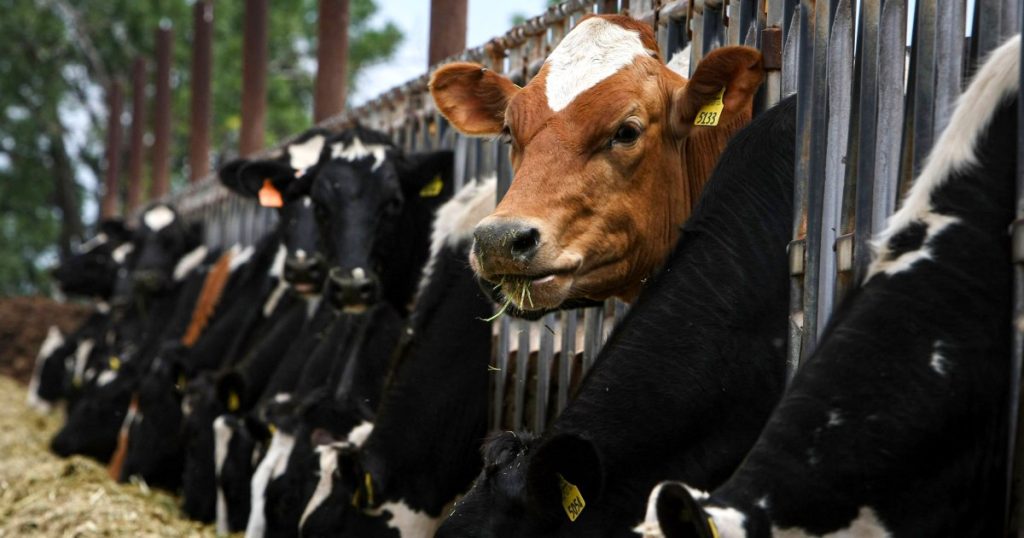The federal government has pledged nearly $200 million in funding to control the spread of bird flu on dairy farms in the United States. This money will be used to assist farms in reducing the spread of the virus, cover veterinary costs, and compensate farmers who have lost milk due to sick cows. Additionally, the funds will be used to encourage testing of dairy cows and farm workers, which is seen as a crucial step in understanding the true extent of the bird flu outbreak, also known as H5N1.
Currently, there is no requirement for dairy cows to be tested for bird flu unless they are being moved across state lines. This decision is left to the farmers, leading to a low number of cows being tested under the federal order. As of now, only about 80 cows out of 26,000 dairy herds in the U.S. have been tested. The outbreak has affected 42 herds in nine states, with the Department of Agriculture offering $98 million in aid to these farms over the next four months.
While the aid program has been described as a positive step, some experts believe it may not be enough, especially for larger farms that could suffer significant financial losses. The Department of Health and Human Services will also contribute $101 million to monitor people exposed to sick animals, conduct contact tracing, and genetically test the virus for mutations. Wastewater surveillance of the virus will also be conducted, with results to be reported by the CDC.
Initial testing of wastewater sites in Texas, where the outbreak began, indicated the presence of an H5 influenza virus. While wastewater testing can detect influenza A, it cannot determine if the virus originated from a human or an animal. There has been concern about the potential spread of the bird flu virus through dairy products, although testing confirmed that pasteurized products like milk, sour cream, and cottage cheese are safe for consumption.
Although only one dairy worker in Texas has tested positive for the virus during the current outbreak, experts believe there could be more undetected cases. The CDC is offering a $75 payment to farm workers who agree to provide blood and nasal swab samples for testing. Despite concerns about the virus spreading, experts maintain that the risk of bird flu affecting the general public is low. They advise individuals to stay informed but not to let it consume their thoughts, as there is hope that the outbreak will eventually subside.


